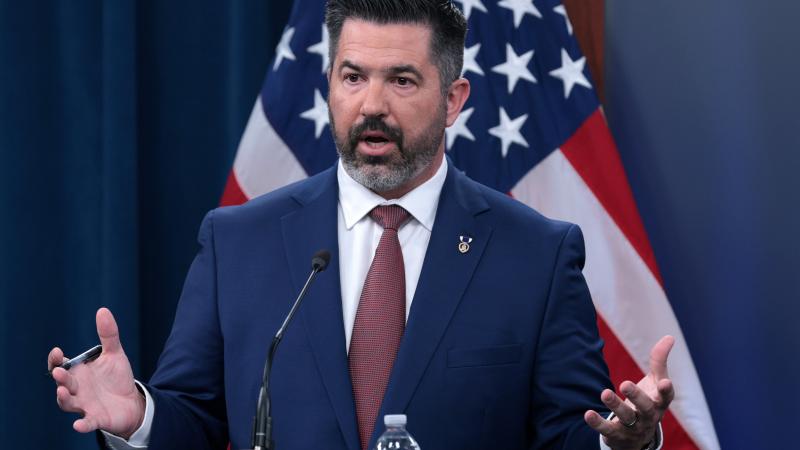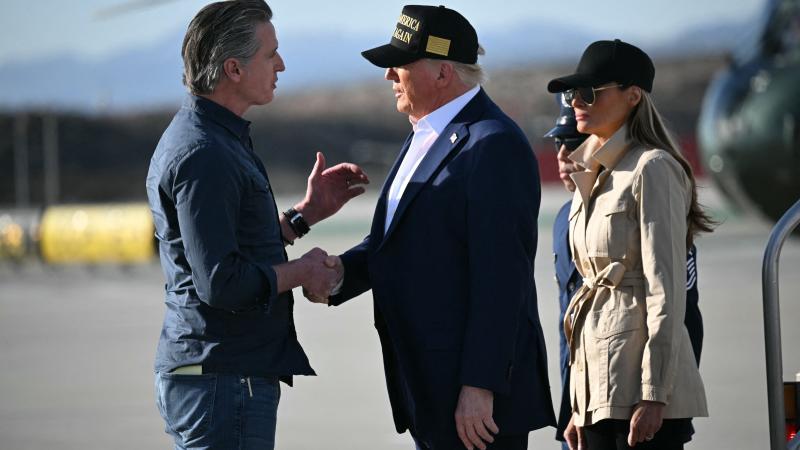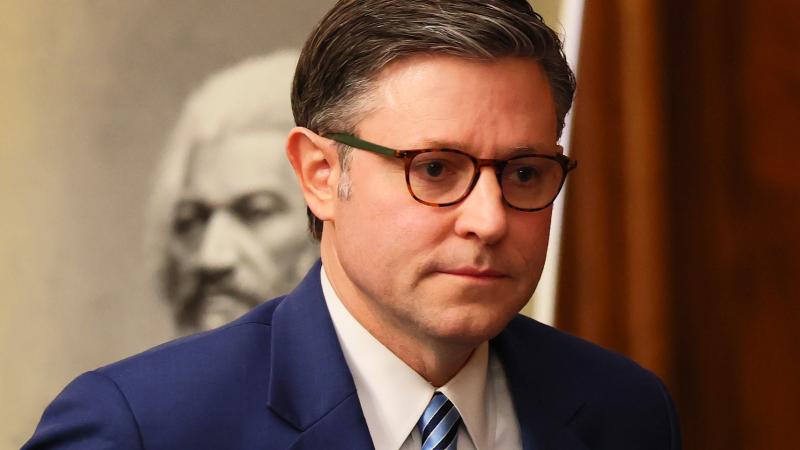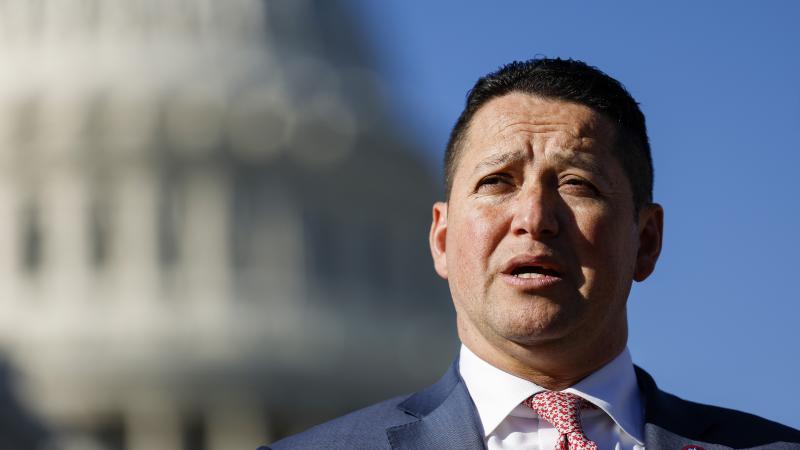Congress should pass laws allowing investigators to read locked cell phones, Barr says
Attorney General did not specify whether he wants tech companies to install "back door" access mechanisms on phones.
Top U.S. law enforcement officials called on Congress on Monday to enact measures allowing them to override corporate resistance and read the data on criminal suspects’ locked cell phones – following an earlier announcement about an al-Qaeda link to a fatal shooting at a U.S. Navy air station.
“Our national security cannot remain in the hands of big corporations who put dollars over lawful access and public safety,” Attorney General William Barr said. “The time has come for a legislative solution.”
Barr requested the action during a joint press conference with FBI Director Chris Wray, in which they presented FBI findings on a December 2019 terrorism case. The findings proved links, the officials said, between an al-Qaeda operative and a Saudi Air Force cadet who opened fire at Pensacola Naval Air Station in Florida, killing three sailors and injuring eight others.
The FBI established the links about four months after the incident, by breaking into two locked iPhones belonging to terrorist Mohammed Saeed Alshamrani, the officials said.
While Barr and Wray praised the efforts of FBI phone-crackers, they harshly criticized the iPhone’s developer, Apple.
“Thanks to the great work of the FBI – and no thanks to Apple – we were able to unlock Alshamrani’s phones,” Barr said.
Shortly after the fatal attack, Barr said, the FBI obtained court orders allowing investigators to search Alshamrani’s cell phones.
“The problem was that the phones were locked, and the FBI did not have the passwords, so they needed help to get in,” Barr said. “We asked Apple for assistance and so did the president. Unfortunately, Apple would not help us unlock the phones. Apple had deliberately designed them so that only the user – in this case, the terrorist – could gain access to their contents.”
During the four months the FBI spent cracking the phones, Wray said, advantage went to the enemy.
“Now, months after the attack, anyone [Alshamrani] spoke to – here or abroad –has had months to concoct and compare stories with co-conspirators, destroy evidence or disappear,” Wray said.
Court orders compelling Apple or other tech giants to help are not sufficient, the attorney general said.
“The developments in this case demonstrate the need for a legislative solution,” said Barr, who did not specify the solution he seeks, nor whether he wants lawmakers to compel tech companies to install a "back door" access mechanism on cell phones.
Apple did not immediately respond on Monday to a request for comment.
Legislators addressed the discussion last year, in hearings before the Senate Judiciary Committee.
In the session that examined encryption versus lawful access, Apple told legislators that the complex codes that lock individual cell phones are important safety devices.
“Encryption is needed to protect from malicious actors whose attacks are growing exponentially in scope, frequency and sophistication,” said Erik Neuenschwander, Apple’s user privacy director and a longtime software engineer.
Encryption enables iPhones to be protected against hackers and criminals, Neuenschwander testified.
“We do not know of a way to deploy encryption that provides access only for the good guys without making it easier for the bad guys to break in,” he said.
Some information is hidden even from Apple, by design, Neuenschwander said, noting that if the company is locked out, so too are “nefarious insiders or malicious hackers.”
The issue is primed for compromise, one prominent law enforcement official suggested.
“A middle ground exists in the smartphone encryption debate,” testified New York County District Attorney Cyrus Vance Jr., who cited cases in which criminal investigations were stymied by locked cell phones.
A proper balance between privacy and public safety can be achieved in part by requiring a court-ordered search warrant, Vance said, and by limiting the types of data that can be obtained.
In Monday’s press conference, Barr pushed for quick action.
“We cannot do our jobs when companies put the ability to defeat court-authorized searches in the hands of terrorists and criminals,” Barr said, adding that “we cannot afford to wait longer.”















